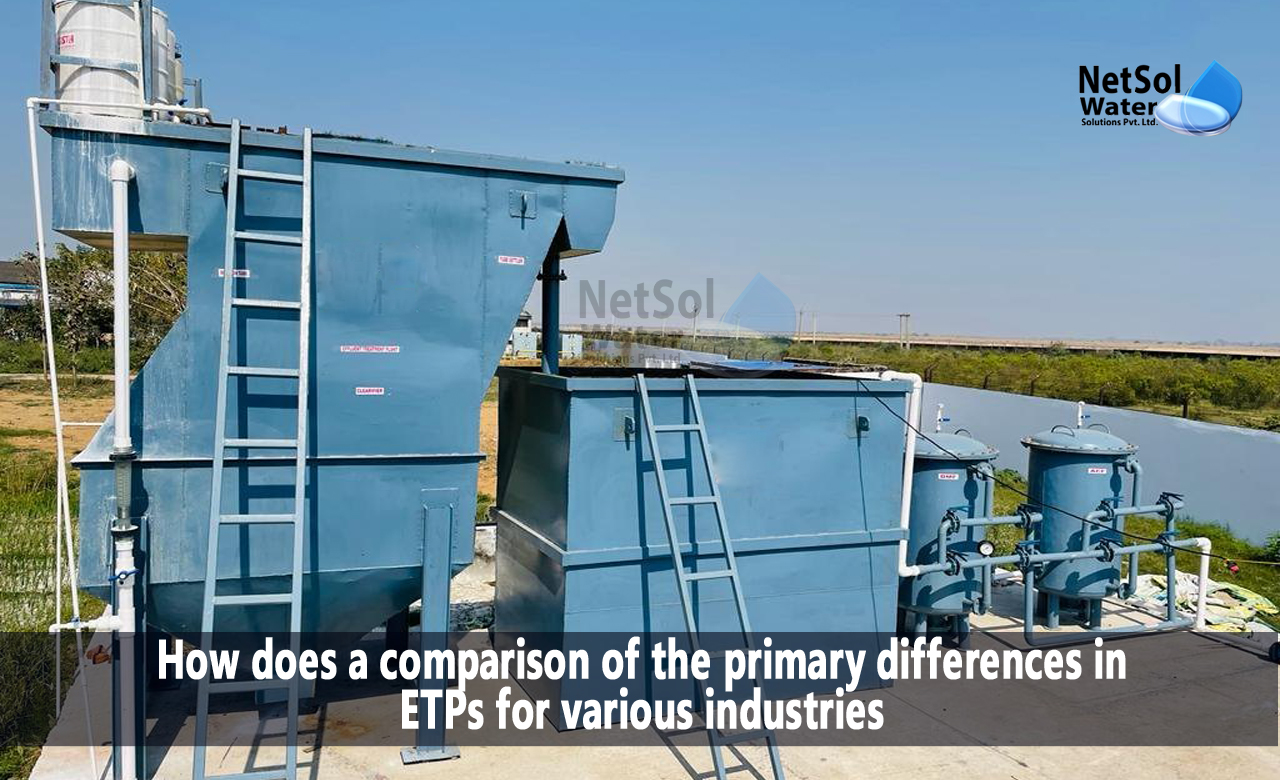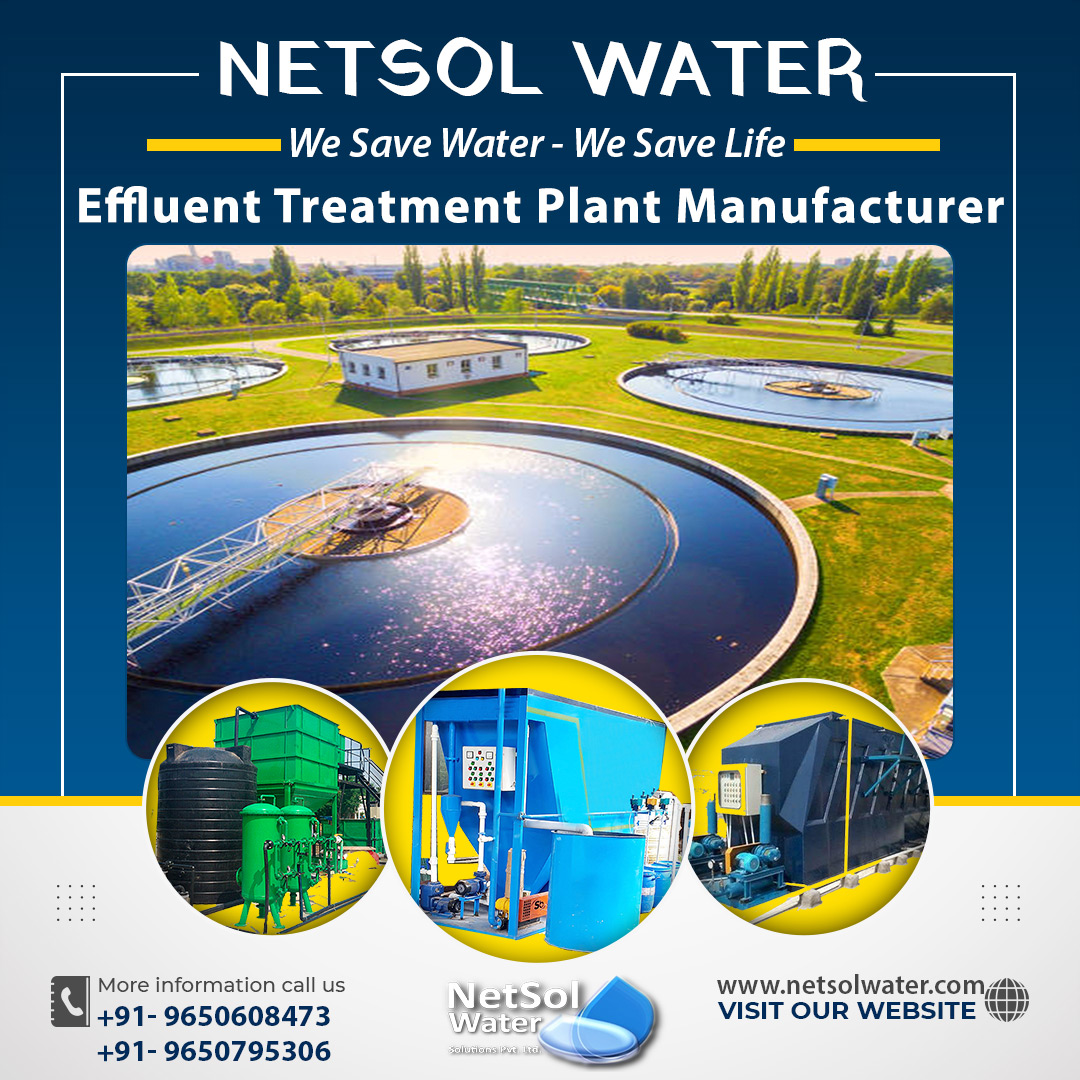How does a Comparison of the ETPs for various industries?
In order to properly treat and manage wastewater, ensure compliance with environmental rules, and minimize the impact on the environment, effluent treatment plants, or ETPs, are important in a variety of industries. Nonetheless, there are notable differences between industries in the ETP practises and standards. We'll examine the main variations in ETPs for the food processing, chemical, and pharmaceutical industries in this blog, illuminating their distinct problems and strategies for solving them.
1. Nature of Wastewater
The type of wastewater that ETPs in these businesses generate is the first significant distinction between them:
· Chemical Industry: A variety of poisonous and dangerous chemicals, heavy metals, and complex organic compounds are frequently found in the wastewater from the chemical industry. Because of this, sophisticated treatment procedures are required to eliminate or neutralise these pollutants.
· Pharmaceutical Industry: Various organic and inorganic materials, solvents, and active pharmaceutical ingredients (APIs) can all be found in pharmaceutical wastewater. A major worry is the removal of APIs in particular because of the possible risks they pose to the environment and human health.
· Food Processing Industry: Grease, oil, suspended particles, and organic matter are the main components of food processing wastewater. This sector concentrates more on biological treatment methods to eliminate solids and decompose organic contaminants.
2. Regulatory Requirements
Specific regulatory regulations pertaining to wastewater discharge are applicable to each industry. Their effluents' possible hazards to the environment and human health frequently impact these standards:
· Chemical Industry: Because many of its byproducts are harmful, the chemical industry is governed by strict laws. Ensuring that effluents do not affect aquatic life and eliminating hazardous chemicals are two aspects of compliance standards.
· Pharmaceutical Industry: Because pharmaceutical chemicals can have a negative impact on ecosystems and human health, regulatory bodies keep a tight eye on pharmaceutical wastewater to make sure that APIs and other pharmaceutical compounds are appropriately removed.
· Food Processing Industry: Although there are laws governing this sector, they frequently concentrate on nutrients and organic materials. The main objective is to stop water bodies from being contaminated and ensure safe water disposal.
3. Treatment Technologies
Each industry's unique wastewater properties and regulatory requirements have an impact on the treatment technology chosen:
· Chemical Industry: To eliminate hazardous substances and heavy metals, chemical businesses frequently use cutting-edge treatment techniques such membrane filtration, adsorption, and chemical precipitation. Systems known as Zero Liquid Discharge (ZLD) are also frequently used to reduce wastewater outflow.
· Pharmaceutical Industry: To break down APIs and other organic chemicals, the pharmaceutical industry largely uses biological treatment techniques such activated sludge processes and bioreactors. Recalcitrant compounds can also be treated with advanced oxidation methods.
· Food Processing Industry: To break down organic matter, biological treatment methods like aerobic and anaerobic digestion are frequently used in this industry. Grease traps assist in separating fats from solids, and screening and sedimentation are employed to remove sediments.
4. Waste Minimization and Reuse
Reusing treated effluents and conserving water are priorities for industries:
· Chemical business: Waste reduction and reuse are frequently given top priority in the chemical business due to the poisonous and harmful nature of chemicals. While ZLD systems try to reduce wastewater output, some byproducts can be recovered and used again.
· Pharmaceutical Industry: Reusing wastewater is becoming more and more popular in the pharmaceutical industry. The environmental impact of APIs eliminated during wastewater treatment can be minimized by recovering and recycling them.
· Food Processing Industry: This industry frequently concentrates on conserving water, recycling treated water for non-potable uses, and extracting energy from wastewater using anaerobic digestion, among other techniques.
5. Effluent Monitoring and Analytics
All industries need to monitor their effluent, although the particular criteria that matter differ:
· Chemical Industry: Toxic chemicals, heavy metals, and complex organics are among the metrics that the chemical industry closely monitors in addition to standard parameters. Accurate detection frequently requires the use of sophisticated analytical equipment.
· Medicinal Industry: APIs and medicinal chemicals are monitored to guarantee their efficient clearance. Mass spectrometry and High-Performance Liquid Chromatography (HPLC) are two popular analytical techniques.
· Food Processing Industry: Organic matter, solids, and fats are the main areas of observation. Standard criteria include Total Suspended Solids (TSS), Chemical Oxygen Demand (COD), and Biochemical Oxygen Demand (BOD).
6. Scale and Capacity
The industry also affects the size and capacity of ETPs:
· Chemical Industry: To effectively manage a huge volume of wastewater, chemical plants are frequently large-scale operations with significant treatment facilities.
· Pharmaceutical Industry: Pharmaceutical ETPs are made to treat complicated effluents precisely and effectively, despite their generally moderate size.
· Food Processing Industry: The size of ETPs varies greatly in this sector, with some smaller facilities specializing in localized wastewater treatment.
Conclusion:
Plants that treat wastewater are essential for reducing the negative effects that different businesses have on the environment. The scale and capacity of the plants, along with the wastewater characteristics, regulatory requirements, treatment methods, waste minimization strategies, and effluent monitoring, are the main factors influencing the variations in ETPs for the food processing, chemical, and pharmaceutical industries. Comprehending these differences is crucial to the design of efficient and legal wastewater treatment systems in every industry.




